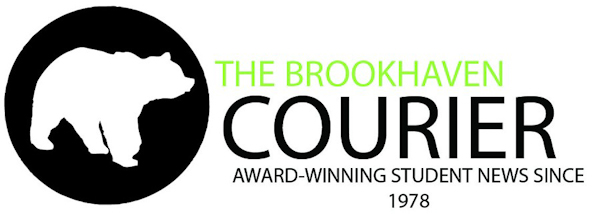By Jubenal Aguilar
Managing Editor

Students in Brookhaven College’s pilot program, Partners in Academic Success, recently donated several bags full of food and toiletries to the campus food pantry located in T Building. Shavana Lopez, Brookhaven adjunct faculty, said there was no minimum placed on what a student in any of her three HDEV 0092 classes could donate.
“All the students donated something, and the pantry was overflowing every single time they donated,” she said. PASS is an initiative aimed at giving at-risk students a second chance and helping them correct deficiencies that are keeping them from being successful. It is a collaboration between advising and instruction. One of the components of the program has been a development program has been a development of community, both on campus and in the local area.
This activity was the first time Al Davis, senior academic adviser and PASS coordinator, had seen some of the students take part in the Brookhaven community. He said most of the students had never been a part of a group or club on campus.
“It was a very touching experience,” Helen Pleitez, a student in the program, said. “I’ve donated before in high school, but this … was just amazing how everybody participated and donated to the campus.”
Davis said students in the program are those who would have been on suspension, dismissal or indefinite dismissal this semester. Students on suspension would have to sit out one semester, while those on dismissal must wait a full year before being allowed to enroll in any course, Davis said.
Some students would have been ineligible to enroll in the district until at least January 2017, Davis said. In addition to taking Lopez’s HDEV 0092 course, students were allowed to enroll in one other course.
“We are tackling the deficiencies that students face every semester,” Davis said, “and trying to have them do a self-assessment to find out how to strengthen those deficiencies or purge [them], not only from their academic life, but their overall being.” He also said the goal is to help the students reach a good academic standing and maintain it.
“It feels like a lot of bonding,” Pleitez, said. “Mostly in other classes, you’re listening to lectures and taking notes. In here, we go over the book, but it’s mostly describing our personal issues or examples in life.”
Steve Kim, a student, said the group sessions have helped everyone grow, and the students discuss more personal topics than in a typical classroom setting.
“It helps those students, including me, find out what mistakes [we have] made, how to overcome obstacles and to correct behaviors and habits that lead to us being put on probation and not being successful in school, as well as everything else,” Kim said.
Jennifer Allen, history faculty and pantry volunteer coordinator, was present when Lopez’s third class dropped off donations to the pantry. “I don’t know if words are actually adequate,” she said. “I was just overwhelmed with gratitude and humbled at the kindness of strangers.”
In the summer of 2015, Lopez approached Brad Thomas, assistant director of academic advising, about implementing a class for students on academic probation, Davis said. However, with registration for the regular semester already underway, it was decided the issue would be revisited at a later time.
Davis said he was asked to join Lopez because of his experience with advanced probation status students.
“I think that [Davis] and I have a bond that makes a difference to where all the students know it’s not just the professor; there’s dual support here,” Lopez said. She also said the relationship with advising has been key to the success of the program.
An adviser and a professor are working together to help the students, Lopez said. Kim said having a counselor taking an active role in the class has been beneficial.
“Some of these students don’t have a support system, so when they come to school and there are two people that really care about them, that really want to see them succeed, I think that really stands out,” Lopez said.
Davis and Lopez said two more community-building projects are planned for the program this semester. The first will involve external community building by donating food and clothing to an area of Dallas-Fort Worth heavily populated by the homeless.
Lopez said she is hoping to help a child who is terminally ill with the last project. “[We want to let them know that] regardless of what place you think you do not have in society, there’s a group of people who know nothing about you, but they are your cheerleaders, and they are cheering you on from a distance,” Davis said.






